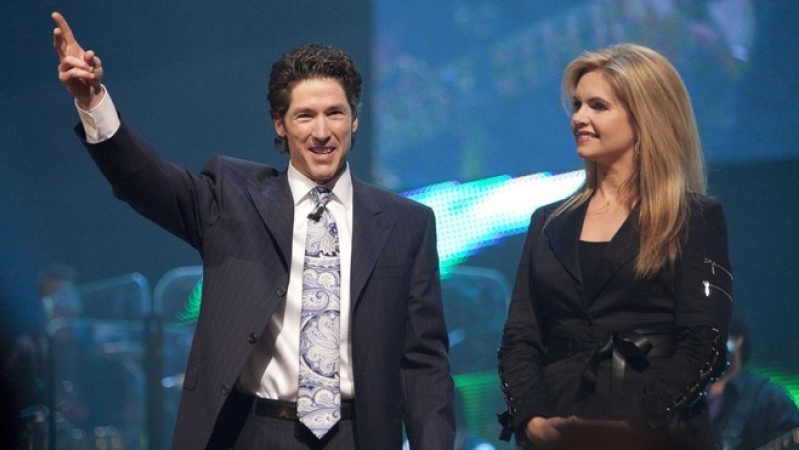
Joel Osteen, popular author and pastor of Lakewood Church, has opened up about why he avoids discussing controversial social and political issues from the pulpit, explaining that such messages can "turn people off."
In a recent interview on WBUR's "Here & Now" radio program, Osteen was asked if he believes issues such as homosexuality and abortion are important for pastors to address.
"I think they are important but I think everybody has their own calling," he responded, "[but] it's not what I'm called to do."
"I have friends who are very political. They're pastors and that's what their thing is. But I think sometimes, that the church world, we can take one issue and make it really, really big and it can turn people off where there are many bigger issues. That's why I don't like to be defined by one thing," the 52-year-old "Your Best Life Now" author said.
"You know, our message is about lifting people up, helping them fulfill their destiny, helping them to forgive in a tough time, how to make it through this life when life tries to push you down," he added.
Lakewood Church, which was founded by John Osteen in 1959, is located in Houston, Texas and is the largest congregation in the United States, averaging more than 43,500 in attendance per week.
Speaking last Monday, Osteen explained that one of the reasons that his church continues to grow is because he focuses on the everyday issues affecting people, such as marital and relationship problems, rather than focusing on the controversial ones.
This is not the first time Osteen has defended his refusal to address sensitive issues from the pulpit; in June 2014, he told The Blaze he doesn't want his ministry to be defined by how he views issues like gay marriage.
"I think the challenge for me that you have to overcome is they want to go to the hot button issues and for some people, that's not what my ministry's about or what I'm about," Osteen told the news source. "It's just not my focus, so for me it's easy for me to walk away from an interview and for people to think, 'That's just the guy who's against gays or against some other hot button issue.'
"I try to express myself in a way-'Here's what I believe the Scripture says, but it also says love God, love every person, love your neighbor," he added. "So I just try to find that balance."
Osteen stated that while he understands people on both sides of the issue are unsatisfied with his response, he believes his avoidance of the matter is the "right thing" to do.
"I'd rather get criticized for who I am ... this is just who I am," he explained. "This is the path I'm supposed to take."
"There's different approaches," the pastor continued. "I just know that my gift is encouragement, hopefully to uplift people."
Last year, multi-platinum recording artist Carman Licciardello took to social media to defend Osteen, who at the time was the subject of criticism from many in the Christian community who took issue with the pastor's focus on positive thinking and prosperity.
"He is a God ordained bridge between the mainstream world and the church and we really need to protect our bridge. He's a pastor," the singer wrote. "He's not an evangelist. Though he does offer prayers for salvation, he doesn't have to in order to fulfill his call. We have to see him for everything he is instead of terrorizing him for everything he's not. He can not say everything we want him to say. But if we keep him in place he creates a hunger in people to go to their local churches and hear 'the rest of the story'".






